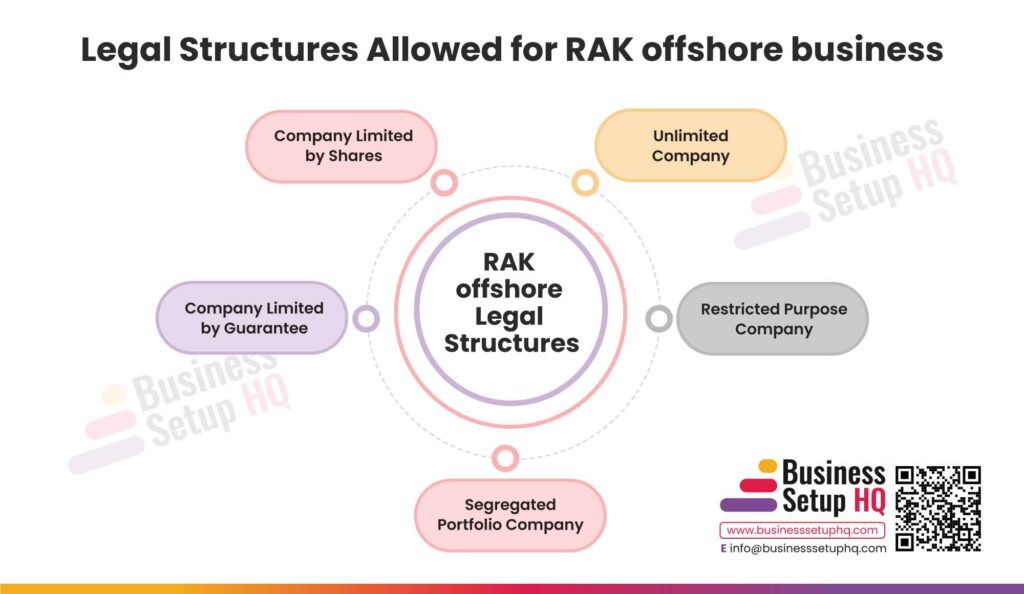Secure Your Assets with Offshore Company Formation Strategies
Secure Your Assets with Offshore Company Formation Strategies
Blog Article
Browsing the Globe of International Service: Insights on Offshore Company Formation
Offshore Company Formation provides a strategic avenue for worldwide business operations. It uses notable benefits, such as tax optimization and boosted privacy. Nevertheless, the procedure is not without its obstacles. Comprehending the complexities of governing demands and different territories is important. As services think about these options, the steps entailed can greatly affect their long-term success. What are the crucial aspects that can lead to efficient offshore management?
Understanding Offshore Business: Interpretation and Purpose
Offshore business have become a prime focus in worldwide organization conversations as a result of their unique legal and financial frameworks. These entities are developed in territories beyond the proprietor's nation of house, frequently with favorable regulatory settings. Normally, overseas business offer numerous objectives, such as property protection, tax optimization, and improved personal privacy. They can operate in multiple industries consisting of trade, financing, and technology, supplying adaptability for worldwide operations.The defining characteristic of an overseas Company is its ability to conduct service internationally while benefiting from reduced tax obligation obligations and regulative worries. This framework interest business owners and investors looking for to diversify their profiles and handle dangers effectively. Furthermore, lots of overseas territories supply motivations to attract international investment, resulting in a rise in the Formation of these firms. Understanding the definition and objective of overseas business is vital for navigating through the complexities of global business and capital circulation.
Key Benefits of Offshore Company Formation
The Formation of an overseas Company uses a number of compelling benefits that draw in capitalists and business owners alike. Among the key advantages is tax obligation optimization; several territories supply positive tax rates or exemptions, enabling companies to take full advantage of earnings. In addition, overseas firms commonly enjoy better privacy, as several jurisdictions have rigid personal privacy regulations securing the identifications of Company owners and shareholders.Another substantial advantage is asset protection. Offshore entities can guard properties from political instability and economic recessions in the owner's home nation. These companies can help with international trade, offering simple accessibility to international markets and streamlining cross-border transactions.The flexibility in company framework also appeals to organization owners, as offshore companies can be customized to satisfy details operational demands. On the whole, the critical Formation of an overseas Company can lead to enhanced economic safety and security, operational efficiency, and a robust international presence.

Usual Difficulties in Developing Offshore Entities
Establishing offshore entities offers a number of difficulties that services need to browse. Trick concerns include regulatory conformity, which can differ significantly throughout jurisdictions, and the effect of social differences on operations. In addition, organizations have to take into consideration the threats and prices related to keeping an offshore visibility, which can affect general feasibility.
Governing Compliance Issues
Navigating governing compliance problems postures substantial difficulties for businesses when they seek to develop offshore entities. Each territory has its own set of laws and guidelines, which can differ commonly and might be difficult to browse. Business often deal with obstacles pertaining to tax obligation compliance, anti-money laundering laws, and reporting demands. In addition, changes in international tax obligation laws can develop unpredictability, making it crucial for businesses to stay updated on conformity obligations. Failing to comply with these guidelines can cause extreme penalties, including fines and reputational damage. Engaging and comprehending the lawful framework with neighborhood professionals is necessary for successful offshore procedures, making certain that services can run within the boundaries of the regulation while optimizing their global method.
Social Distinctions Effect

Cost Factors To Consider and Risks
Steering with the monetary landscape of offshore entity Formation presents numerous cost factors to consider and fundamental risks. First setup costs often include legal costs, enrollment expenditures, and compliance fees, which can collect substantially. Additionally, ongoing upkeep expenses such as annual charges and accounting solutions have to be factored in. Changing governing environments in various territories present risks, potentially leading to unforeseen prices or lawful issues. Services might additionally run into difficulties connected to tax, financial, and reputational concerns, which can impact productivity and functional effectiveness. Prospective business owners should conduct detailed due persistance and monetary projecting to mitigate these dangers and assure sustainable growth. Understanding these cost considerations is essential for successful overseas organization ventures.
Steps to Establish Up an Offshore Company
Establishing an overseas Company includes numerous important actions that call for mindful consideration. Key variables consist of choosing the suitable territory and guaranteeing conformity with neighborhood policies, along with gathering needed documentation. Comprehending these aspects is important for an effective overseas business configuration.
Picking the Right Jurisdiction
Picking the ideal jurisdiction is crucial for anyone looking to set up an overseas Company, as it can substantially influence business's legal responsibilities, tax obligation liabilities, and functional ease. Numerous aspects need to be considered, consisting of the political security, regulatory atmosphere, and tax motivations provided by prospective jurisdictions. Popular selections usually consist of countries with positive tax regimes, such as the British Virgin Islands or Cayman Islands, as a result of their low or absolutely no tax rates. Additionally, the convenience of doing business and the credibility of the territory can influence investor self-confidence and market gain access to. Inevitably, an educated decision based on detailed study will ensure the overseas Company is placed for long-lasting success and conformity with international standards.
Required Documentation and Compliance
When establishing an offshore Company, recognizing the essential documentation and compliance needs is necessary to ensure a smooth process. Key documents typically consist of a certification of incorporation, a memorandum and posts of association, and evidence of identity for shareholders and directors. Some jurisdictions might require extra information, such as organization plans or bank references. Conformity with regional laws is essential, which typically involves appointing a signed up representative and maintaining a licensed office. Regular reporting and adherence to tax obligations need to likewise be taken into consideration. Failing to follow these demands can result in charges or even dissolution of the Company. Complete prep work and examination with lawful professionals can aid browse these complexities efficiently.
Selecting the Right Jurisdiction for Your Offshore Company
Just how can one establish one of the most ideal jurisdiction for an overseas Company? Picking the best jurisdiction calls for cautious Recommended Reading factor to consider of multiple factors. The lawful and tax environment plays a crucial role; territories with desirable tax obligation programs might boost company success. Furthermore, the political security and economic climate of a place can impact long-lasting company viability.Another crucial facet is the schedule of financial solutions and banking framework, which help with smooth procedures. Potential entrepreneur ought to additionally consider the convenience of operating, including the speed of registration and the clearness of regulations.Furthermore, language barriers and cultural distinctions can affect procedures; as a result, aligning with a territory that lines up with service objectives and personal convenience is vital. Eventually, thorough research study and professional guidance can direct entrepreneurs in making a notified choice that straightens with their critical goals.
Conformity and Regulative Considerations

Finest Practices for Managing an Offshore Service
Managing an overseas organization calls for tactical preparation and thorough execution to enhance efficiency and reduce risks. Establishing a durable compliance structure is necessary to browse varying guidelines across jurisdictions. Normal audits and risk assessments aid identify prospective vulnerabilities.Moreover, leveraging local knowledge via collaborations with regional specialists can improve operational performance and social understanding. Using innovation, such as cloud-based monitoring systems, improves interaction and data administration, making it possible for much better decision-making. In addition, keeping clear monetary documents and ensuring prompt tax filings are important to copyright the Company's honesty. Spending in team training and development fosters a proficient workforce, advertising advancement and adaptability.Finally, establishing clear efficiency metrics and crucial performance signs (KPIs) aids analyze organization progress and inform strategic changes. By adhering to these best techniques, firms can efficiently manage their overseas procedures, ensuring lasting success and sustainability in a competitive international industry.
Regularly Asked Questions
What Is the Expense of Creating an Offshore Company?
The expense of creating an offshore Company differs widely relying on territory, lawful demands, and solutions needed. Commonly, expenditures can range from a couple of hundred to numerous thousand dollars, consisting of registration, compliance, and annual charges.
The length of time Does It Take to Establish an Offshore Entity?
The moment required to establish an overseas entity varies substantially, generally ranging from a few days to numerous weeks (offshore company formation). Aspects influencing this period include jurisdiction, required paperwork, and the effectiveness of the company involved
Can People Form Offshore Companies Without a Company Companion?
Individuals can certainly create overseas companies without an organization partner. Lots of territories permit single-member entities, equipping entrepreneurs to develop and manage their businesses separately, while still benefiting from potential tax benefits and legal securities.
Are There Any Tax Benefits for Foreign Investors?

What Type of Services Generally Utilize Offshore Business?
Offshore business are regularly used by numerous fields, consisting of ecommerce, money, and technology. These entities usually offer functions such as possession security, tax optimization, and privacy, interesting both private entrepreneurs and international firms. Offshore firms have actually ended up being a focal factor in global organization discussions due to their unique lawful and financial structures. They can operate in numerous industries consisting of technology, money, and official statement profession, giving flexibility for worldwide operations.The specifying characteristic of an overseas Company is its ability to carry out business internationally while profiting from decreased tax responsibilities and regulative problems. Furthermore, overseas firms frequently take pleasure in higher discretion, as many jurisdictions have stringent personal privacy regulations shielding the identifications of Company proprietors and shareholders.Another significant advantage is asset protection. These companies can assist in worldwide profession, supplying simple accessibility to worldwide markets and simplifying cross-border transactions.The versatility in business structure additionally allures to business owners, as overseas companies can be customized to fulfill certain functional requirements. Selecting the appropriate territory is vital for anyone looking to establish up an overseas Company, as it can considerably affect the business's legal responsibilities, tax obligations, and operational ease.
Report this page